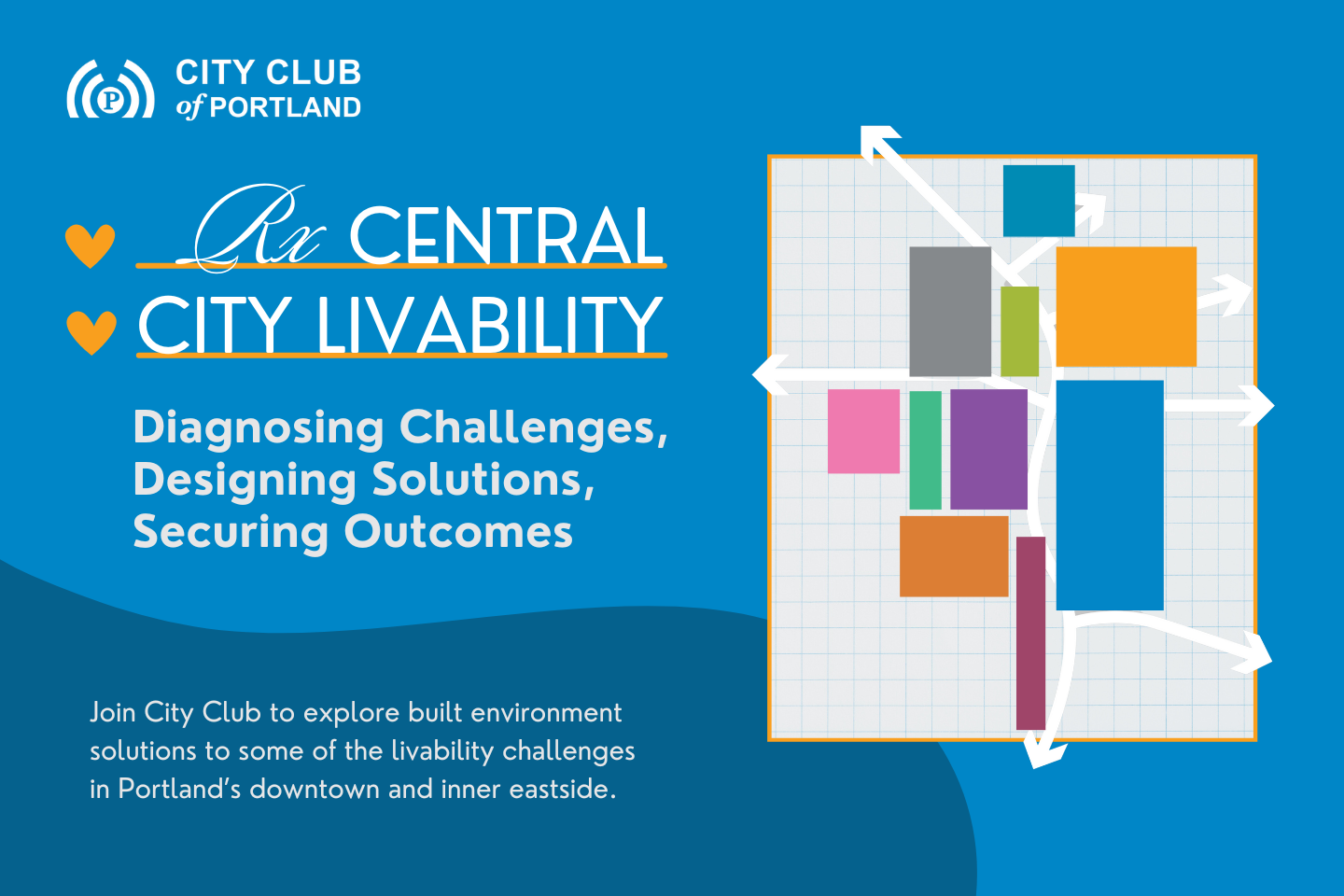City Club of Portland is excited to announce our next series of public programs, Rx for Central City Livability, hosted by the Built Environment Issue Committee.
Join us to explore built environment solutions to some of the economic and livability challenges facing downtown Portland and the inner Eastside. Too little parking? No public bathrooms? Fresh groceries feel like a luxury? Empty storefronts while small businesses struggle to find affordable space? By the end of this series, we hope to come away with new prescriptions for how to unlock the full potential of the Central City as a great place to both work and live.
Rx for Central City Livability is a series of panel discussions and work sessions to spark conversation and action toward implementation of a new, bold vision for Portland’s Central City, with a focus on the built environment—how its streets, buildings, and public spaces shape the way we live, work, and move through it.
We’ll explore questions like:
- Who is Downtown for, and how can it become “everybody’s second neighborhood”?
- Where are the places that inspire pride and a sense of responsibility to care for them?
- How does land use in the urban core need to evolve to support complete neighborhoods?
- What makes a place truly welcoming for all Portlanders?
The Series Unfolds in Two Parts
Part 1: Panel Discussions (March, April, May)
Part 2: Work Sessions (June, July) – Schedule to be Announced
Across two work sessions, participants will imagine what different parts of the Central City built environment might look like in 2050. Possible conversation topics could include a downtown that blends residential, commercial, and public spaces, streets transformed into vibrant public areas, the integration of self-driving cars, or stronger connections between downtown and surrounding neighborhoods.
Insights from these sessions will help shape the work of City Club’s Built Environment Issue Committee as they recommend a framework to create a Central City 2050 Plan and support future city planning efforts, policy development and implementation.
Acknowledgments
Thank you to our season sponsors, AARP Oregon and Fight Against Sex Trafficking (FAST), and to our series sponsors, Health Care for All Oregon, City Cast Portland, and Neil Kelly; for their generous support.
We also appreciate the support of our media partners, Open Signal and XRAY.fm, for helping us distribute our in-person event recordings on television and as a podcast.
Support Us
Event sponsors may purchase a table (up to 8 seats, including lunch) for $500 if they are a small business or nonprofit with fewer than 10 employees, or $1,000 for all other organizations.
Looking for a bigger impact? You can also sponsor an entire series or the full season of City Club events.
To discuss sponsorship levels, benefits, and how your support can amplify civic dialogue in Portland, contact finance@pdxcityclub.org.
City Club of Portland relies on organization sponsors to help underwrite the cost of bringing our programming to our members and the public. As a nonpartisan, impartial forum for civic dialogue, City Club accepts sponsorships from a wide spectrum of organizations. Our policies prevent sponsors from influencing the content of our programming. We are deeply grateful to all who support our events and research.

